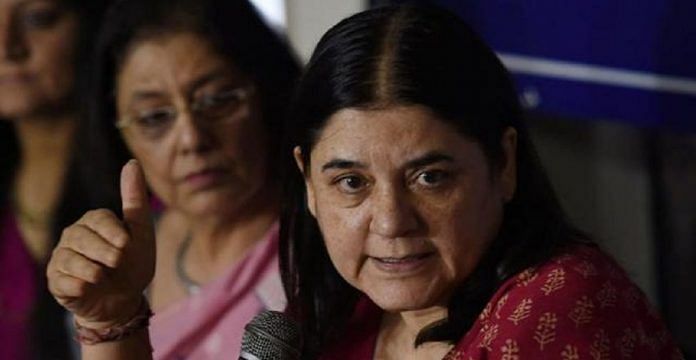Experts argue current adoption norms are extremely bureaucratic and prospective parents get tired of the waiting process and give up.
New Delhi: The central government’s proposal to make the process of adopting children more transparent could potentially reduce adoption rates in the country, experts fear.
At a meeting called to review the implementation of the adoption programme this week, women and child development minister Maneka Gandhi instructed state officials to ensure that all unregistered childcare institutions are registered under the Juvenile Justice Act in the next 30 days or shut down operations.
According to the adoption regulations of the Juvenile Justice Act, all childcare institutions were to be registered with the Central Adoption Resource Authority (CARA) within six months of the legislation coming into force in January 2016. However, 20 months later, only half of such institutions have completed the registration process.
At present, adoptions in India take place under either the JJ Act or the Hindu Adoption and Maintenance Act (HAMA). Adoptions under HAMA remain largely unregistered, due to which the government is encouraging more people to go for adoption under the JJ Act.
With more stringent regulations, experts are not sure if the intended goal can be achieved. While under HAMA, children can be adopted with a mere agreement between two parties, the JJ Act is fraught with paperwork.
A registered childcare institution is required to conduct a study of the adoptive parents, reject or approve the prospective family, upload this information on CARA, after which the parents are listed in the central waiting list.
Moreover, the JJ Act is silent on the issue of maintenance, as opposed to HAMA. Under the former, it is merely assumed that the adopted child will have the same rights as a natural child. However, under the latter, it is explicitly stated that the child would be entitled to maintenance.
“We fear that under the JJ Act, the child may not get anything,” said Lorraine Campos, assistant director of Palna, one of the oldest adoption homes in the capital.
CARA chief executive officer Deepak Kumar said that the aim is to ensure that even adoptions that take place under the Hindu Adoption and Maintenance Act (HAMA) are recorded in a national database and all childcare institutions are licensed by the JJ Act.
“There is no system of checks and balances under HAMA, and a child can be adopted merely through a datt grahan ceremony,” Kumar said.
Earlier, when most adoptions took place between relatives, this law worked. But, now the law lends itself to tremendous misuse, he explained. “We are planning to create a national adoption register so that the government at least knows what’s happening under HAMA.”
If one goes by the numbers, the adoption process is indeed in a shambles. CARA at present has a waitlist of more than 17,000 prospective parents, and very few registered children up for adoption. This is because among the adoptable 48,000-odd children across childcare institutions, only 2,000 are linked to adoption agencies under the JJ Act.
However, the limitation may lie in the bureaucratic nature of the JJ Act itself, experts say. Introducing too many checks and balances has backfired, argues Campos. “Adoptions under the JJ Act are extremely bureaucratic, and far from promoting adoptions, the number of adoptions has gone down in the past two years. Parents simply get tired of the waiting process and give up,” she explained.
Underscoring the need to shorten the process of waiting, two years ago Maneka Gandhi had said, “People have to wait for three to four years to adopt. That is inexcusable. I want to overhaul the system so it takes not more than four months to adopt.”
HAMA and JJ Act have completely different orientations. The JJ Act only allows for adoption of destitute children, who need to be certified as destitute by a Child Welfare Committee.
Vinita Bhargava, author of a book on adoption, said, “We cannot abolish HAMA. Even if HAMA is repealed, will there be no altruistic adoptions? Will people be encouraged to opt for surrogacy over adoption,” she asked.



